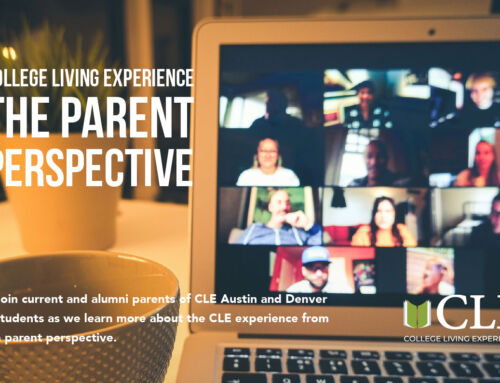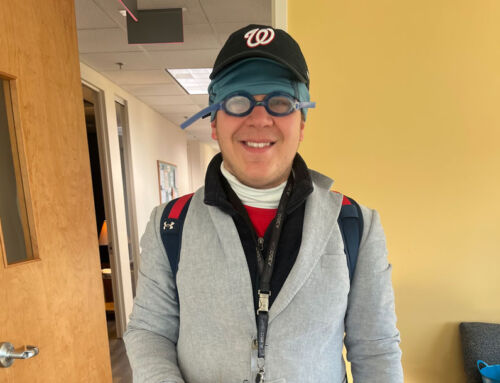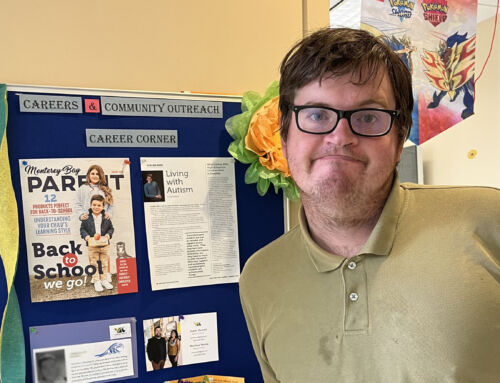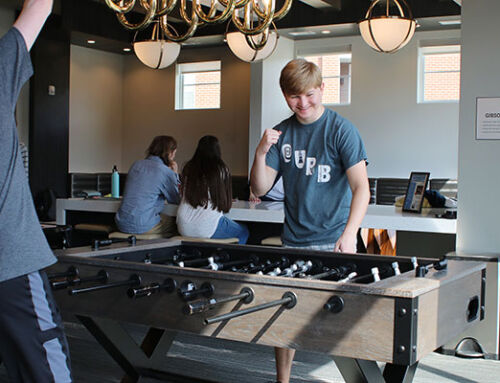by Amy Radochonski
Parents often inquire about CLE as an option for their child and express their wish for them to be in a dorm – so that it “feels” like college or they get the “full college experience.” The idea of being in an apartment feels uneasy or like they are “missing out.” I understand that, and I want to reflect on why we want to challenge our nostalgia and reimagine what a supportive living space can look like.
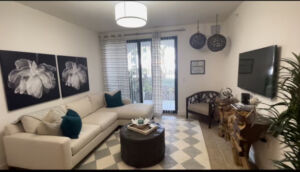 Dorm living can often be nostalgic for many people, including myself. We think of the camaraderie and friendships, gathering in the lounge or going to the dining hall, late-night gatherings, and studying. For many, it is the quintessential college experience.
Dorm living can often be nostalgic for many people, including myself. We think of the camaraderie and friendships, gathering in the lounge or going to the dining hall, late-night gatherings, and studying. For many, it is the quintessential college experience.
I remember the other parts of dorm living. Awkwardly sharing a room with a stranger whose bed is just feet from mine; sharing a bathroom (shower shoes!); not knowing when I could have privacy for a phone call or just time to myself; guests in my room whom my roommate brought over (now even more people in my small space); late night noise in the hallways making it difficult to sleep; and the food – yikes. There is a reason many choose to have a single year of dorm living.
At CLE, we like to think of our living arrangements as all the benefits of being with college peers and community with the benefit of privacy. Think of it as the second year of college, where you get to skip the ritual of a dorm. We have the resident advisor, private bedrooms in an apartment setting, access to campus, beautiful facilities and community gathering spaces, and many other college-age students.
While dorm life holds a romanticized appeal, we recognize that one size does not fit all when it comes to housing arrangements for neurodiverse individuals. That is why consistently 1/3 of our population has tried to go to college independently and had to step back and find a more supportive approach. Our students find the top benefits of an apartment are :
Private Bedrooms
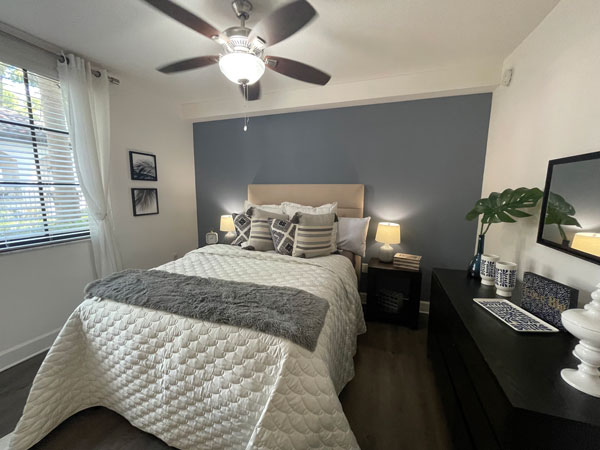 Apartments provide a more personalized space where students can tailor their environment to support their emotional needs. Unlike dormitories, where shared spaces and constant activity can be overwhelming, apartments offer the freedom to create a calming atmosphere conducive to processing the stressors associated with college.
Apartments provide a more personalized space where students can tailor their environment to support their emotional needs. Unlike dormitories, where shared spaces and constant activity can be overwhelming, apartments offer the freedom to create a calming atmosphere conducive to processing the stressors associated with college.
Control over their sleep environment enables students to establish consistent bedtime routines, minimize sensory distractions, and create a sleep-friendly atmosphere tailored to their needs.
Dedicated Bathrooms
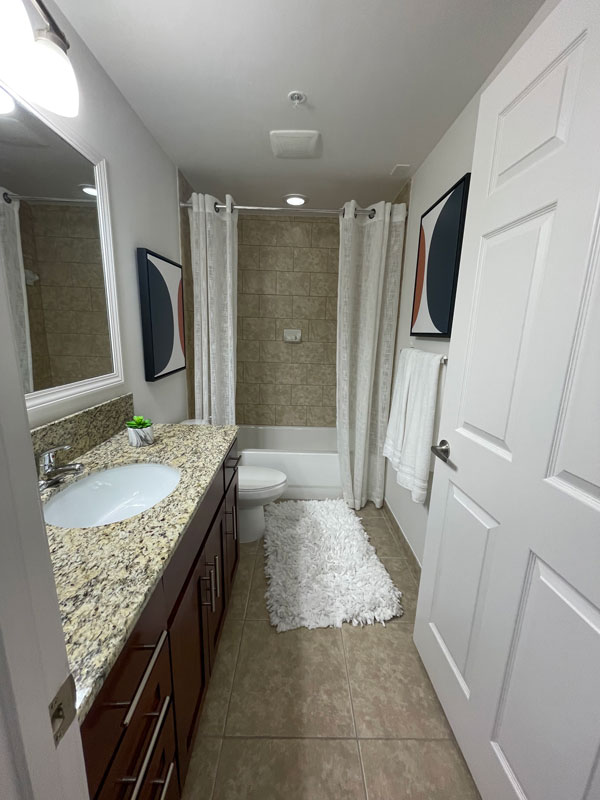 Privacy, particularly in personal hygiene routines, is crucial for many individuals with neurodiversity. All our apartments have private bathrooms, which can be a huge relief. Students have greater privacy and autonomy in maintaining personal hygiene, reducing anxiety and discomfort associated with shared spaces. Having a designated bathroom promotes a sense of independence and dignity, contributing to overall well-being.
Privacy, particularly in personal hygiene routines, is crucial for many individuals with neurodiversity. All our apartments have private bathrooms, which can be a huge relief. Students have greater privacy and autonomy in maintaining personal hygiene, reducing anxiety and discomfort associated with shared spaces. Having a designated bathroom promotes a sense of independence and dignity, contributing to overall well-being.
Flexibility in Daily Routines
Apartment living affords students greater flexibility in managing their daily routines according to their unique preferences and schedules. CLE staff can go in and out for appointments to support these routines. Unlike dormitories with strict rules and communal living arrangements, apartments allow more autonomy in meal planning, studying, and leisure activities. These are all areas where students need additional support and give up living in a dorm. This flexibility can be especially beneficial for neurodiverse individuals who may thrive in structured yet self-directed environments, enabling them to establish routines that promote productivity and emotional regulation.
Opportunities for Social Engagement on Their Terms
 College is full of social norms in the dorm and around campus. Students often report that the volume of new interactions or masking they may engage in is exhausting. Within their apartment and the chance to live with a CLE peer, students can initially socialize in smaller, more controlled settings.
College is full of social norms in the dorm and around campus. Students often report that the volume of new interactions or masking they may engage in is exhausting. Within their apartment and the chance to live with a CLE peer, students can initially socialize in smaller, more controlled settings.
Apartments offer opportunities for social engagement within a less overwhelming environment than a bustling dorm. Whether hosting small gatherings, participating in quiet activities, or connecting with like-minded peers, apartment living allows students to navigate social interactions at their comfort level, fostering meaningful relationships and a supportive community.
Learning Necessary Life Skills
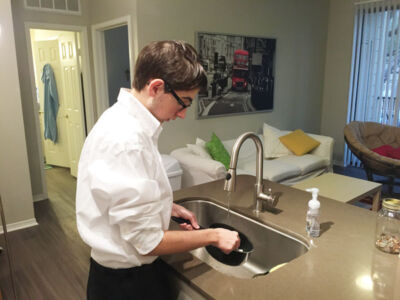 Either during college or after, all our students need to develop the ability to learn to manage their household on their own. Gradually working on this helps ensure the chance to tackle these skills before entering the work world. Many students come to CLE after college and need assistance managing all aspects of adulting and working simultaneously. Students build confidence in their skills and enjoy experiencing the autonomy of being outside their parent’s home.
Either during college or after, all our students need to develop the ability to learn to manage their household on their own. Gradually working on this helps ensure the chance to tackle these skills before entering the work world. Many students come to CLE after college and need assistance managing all aspects of adulting and working simultaneously. Students build confidence in their skills and enjoy experiencing the autonomy of being outside their parent’s home.
But ultimately, what if a student wants to be in a dorm on campus and still access CLE? We do that! We currently have students living in dorms at five universities near one of our 7 centers.
 Amy Radochonski is President of CLE. Previously, she helped lead CLE for 15 years as its VP of Programming. Amy has 22 years of experience in special education and as a behavioral consultant. She is also actively engaged in communities seeking to elevate experiences for neurodiverse students in higher education and the workplace. Radochonski is an alumna of the University of Oregon, holding a B.A. in Educational Studies, endorsed in Special Education, and a master’s in Educational Leadership.
Amy Radochonski is President of CLE. Previously, she helped lead CLE for 15 years as its VP of Programming. Amy has 22 years of experience in special education and as a behavioral consultant. She is also actively engaged in communities seeking to elevate experiences for neurodiverse students in higher education and the workplace. Radochonski is an alumna of the University of Oregon, holding a B.A. in Educational Studies, endorsed in Special Education, and a master’s in Educational Leadership.

